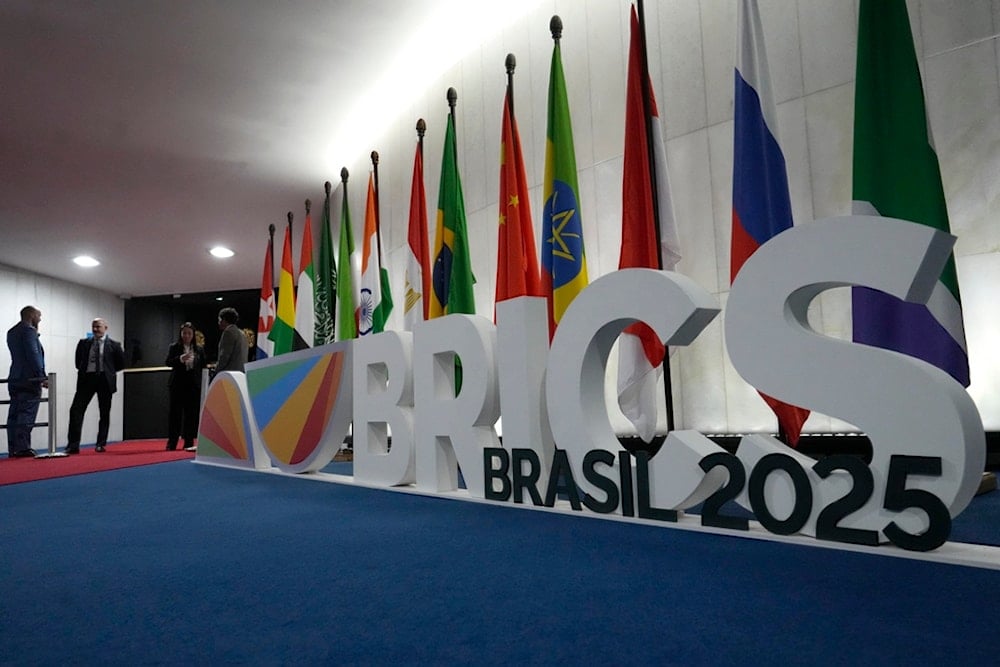BRICS pushes for tech sovereignty with new cloud plan
The BRICS Cloud proposal comes at a moment when member states are increasingly vocal about the need to insulate their technological and economic infrastructure from Western pressure and surveillance.
-

A sign announcing the 11th BRICS Parliamentary Forum stands at the entrance to the Federal Senate in Brasilia, Brazil, Wednesday, June 4, 2025. (AP Photo/Eraldo Peres)
As the 17th BRICS summit opens in Rio de Janeiro on July 6–7, delegates are expected to discuss a bold new initiative: the creation of a BRICS-wide cloud infrastructure. The proposal, aimed at reducing dependence on Western-dominated digital systems, reflects the bloc’s broader ambition to build technological and strategic autonomy in an increasingly shifting global landscape.
Eugenio Vargas Garcia, Director of the Department of Science, Technology, Innovation and Intellectual Property at Brazil’s Foreign Ministry, confirmed the plan is under active consideration. "There is a proposal that must also be reviewed by other BRICS chairs, the BRICS Cloud service," Garcia told RIA Novosti, when asked about science and innovation priorities on the summit agenda.
He touched on concerns over sovereignty in a digital age dominated by US-based tech giants. "Often, cloud storage is located outside BRICS countries, in another nation. This is not a very sovereign approach, which is why Brazil is working to attract capital for investments in data storage and processing centers," Garcia explained.
Digital Autonomy
The BRICS Cloud proposal comes at a moment when member states are increasingly vocal about the need to insulate their technological and economic infrastructure from Western pressure and surveillance. The effort to establish a joint cloud service parallels another major initiative at the summit: the launch of a guarantee fund through the New Development Bank, designed to unlock billions in private infrastructure investment across the Global South.
Brazil, which holds the rotating BRICS presidency this year, is spearheading both efforts. According to officials, the guarantee fund, modeled on the World Bank’s Multilateral Investment Guarantee Agency (MIGA), could mobilize five to ten times its value in infrastructure capital, helping to bridge financing gaps in transport, energy, and digital networks.
5/
, Obinna Isiadinso (@OCIGlobal) June 4, 2025
Welcome to the BRICS+ Cloud era.
Where companies in Malaysia, UAE, Brazil, or South Africa can run AI workloads, without relying on Western hyperscalers.
This isn’t an AWS clone. It’s a parallel cloud civilization.
Absent Leadership
Despite the ambition, the summit opens amid notable absences. Neither Russian President Vladimir Putin nor Chinese Premier Li Qiang is attending in person. Since 2023, BRICS has grown to include Egypt, Ethiopia, Iran, the UAE, and Indonesia, with 15 more countries recognized as partners.
Still, the momentum toward greater technological sovereignty remains strong. The proposed BRICS Cloud initiative is seen by many as a critical step in reducing exposure to Western-controlled platforms, enhancing cybersecurity, and fostering cross-border innovation among member states.
As digital infrastructure becomes increasingly central to geopolitical influence, BRICS is signaling its intent to shape, not follow, the next phase of global tech governance.
Read more: South Africa praises BRICS bank shift toward national currency use

 3 Min Read
3 Min Read








